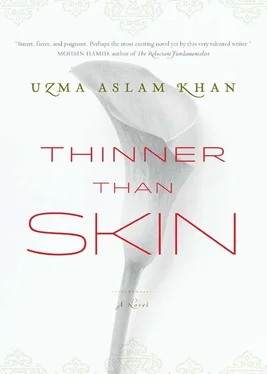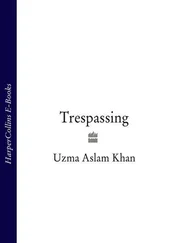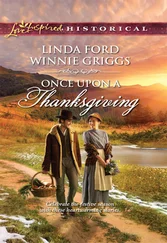He had not cracked the lid. But he was unsure whether to deliver the box. He had buried it, in the most secret place he could think of — Maryam’s shrine, a foxhole, really — and would leave it there while deciding what to do. Before the delivery date, he could be gone. He could reach those men in Gilgit, to whom he was committed to return, before they found out what he had done. He liked this plan, but he had to think.
He kept walking, his footsteps growing surer as he approached another bend in the Kunhar. Here the river laughed gaily as she smacked the rocks on her way to meet the Jhelum. This was where she would cease being his traveling companion. His road twisted west, hers east. At the waterfall made by the river’s pleasure at leaving this valley to meet the next, a Queen had once washed her tired eyes. The bend was still called Nain Sukh.
Ghafoor skipped off the road and down the embankment. He balanced on a rock close to the waterfall. His shirt was wet, his shoes slippery. He was alone with the roar of the cascade and the sunlight flickering between the branches of the pine trees that were suddenly their own true height. He gazed up at those branches that had for centuries trusted the law that said the people of this valley must wait fifty years for each pine, deodar, and fir to reach maturity. Only after maturity could each be cut. Hardly anyone waited anymore, though here, right here in this island where time moved only as it should, the trees had been left alone.
Ghafoor held his breath; he cocked his ear toward the tallest branches. He listened for a very long time. Yes, at last, he could hear them, the reason why the forest to the south was called Chor Mor, the peacock thief. This bend of the river was like a bowl, gathering echoes and swirling them around like tea leaves. The more you waited, the richer grew the cries of those peacocks. He was tempted to hop off the rock and dash into the forest to chase after their feathers, the way he had done many times as a boy.
He stayed on the rock. He leaned forward, and, instead of feathers, he gathered the pure filtered water of the cascading river in his hands. He brushed it over his eyes. His eyes were soothed as lovingly as Queen Nur Jehan’s long ago. He gargled. The water was unpolluted here. He blew his nose. He wet his ears. He rolled the cuffs of his sleeves and let the water roll down the sleekness of his skin, to his elbows. He filled his palms again and poured water back from his widow’s peak, down to the back of his neck, and further, opening his palms, spreading his fingers out like a fan, reaching past his shoulder blades. He took off his shoes, and then his socks. He extended each foot, right one first, beneath the falls. The water was deliciously icy; only now did he realize how much his feet ached. He wriggled his toes. He stretched his ankles. He thought briefly of his wife in the steppe, who did not perform the ritual ablution after sexual intercourse, or after her monthly flow. He decided that when he returned to her, he would make sure she did.
There, his ghusl was complete. He had never felt purer of mind, or intent.
His mind was made up. He had no need to keep walking south. What was in Mansehra anyway? Nothing of relevance to him. He was no mere delivery boy. He did not work for them. He was not their whisperer. He was not their runner. He did not care about their troubles, ultimately. And he told himself again that he was sick of everyone else’s sense of wrong. It was time to right his own. They could find another pair of hands to lock with another pair of hands to cross the canal, or scratch the precipices of the most treacherous land route, or ride the air for all he cared, to wherever a message or parcel needed to reach. He was a free man, like the free men he now lived among. He would do as he wished. He wished to unlock his fingers altogether.
And so he retraced his steps north again, reaching Maryam’s homestead as the moon began to rise. The buffaloes slinked into the night’s shadows, horns blazing white against the darkening sky. He waited. In the middle of the night, when no one was looking, he unearthed the box he had hidden in her shrine. It was the color of earth. He had wrapped it in red cloth to make it easier to find, less for color than texture, in case it needed unearthing in a hurry and he had no means to find it except by the ends of his fingers. He was glad he had done this, for it did help locate it, and rather quickly too — though the cloth felt thinner to his touch, silkier even, and, when he lifted it up, it was lighter than he remembered, much lighter — but he had no time to dwell on this, for he was now in a great hurry. In the dark, it looked about right, and it had to be. He had only left this one. He flattened the earth to ensure that Maryam would not notice the mound he had dug up.
It was while he was leveling the ground that his fingers brushed something else, a bump that felt rough to the touch, closer to the texture he remembered leaving here, and he paused, confused. He began to dig. It was a second box. How could this be? Something was not right. Which one should he take? He had no time to decide. He must leave tonight. Which one was the right size, the right weight. He had no time . He piled both into his bag and again began leveling the earth, this time less thoroughly, so terrified was he of brushing against something else. There was nothing else.
Except, before leaving, he noticed that the ends of the two flowers he had brought Maryam were curling inward, shrinking and drying like mice on their backs, in the slight incline of the shrine just above where the first box had been buried.
Except for the flowers, Maryam did not see any of this, and now Ghafoor was gone and her wrist still hurt. She followed the animals into the forest. They walked themselves, barely glancing back at her, as she cringed at their gauntness. The air filled with their bells and with those of the neighbors’ cattle and she could just about tell the sounds apart.
At one time, each homestead had been spaced far enough apart to allow the herds of each family territory in which to graze, but this was no longer the case. It was another reason to look forward to the summer migration; in the highland pastures, there was space. Kiran’s death had disrupted the rhythm of the entire tol. While some families had stayed in the mountains, others descended the slopes with hers, to help rebuild their lowland dera, leasing timber and thatching grass from the forest department on the aggrieved family’s behalf. Maryam knew that if one of them were in her place, she and Suleiman would do the same. If you ignored their cries, they would ignore yours.
In the days when Maryam was carried on her mother’s back, the way she would later carry Kiran, her mother would explain that timber and thatching grass had once been free. The forest department would take away the materials each spring, when the families dismantled their huts and headed for the mountains, and give back the same timber each autumn, when they returned. She told Maryam it was the Angrez who invented the whole business, the whole revenue-generating forest policy that bound the herders, forcing them to pay a grazing fee and tree-cutting fee. Before the Angrez, they had been free to graze and chop. And the sedentary folk had been friendly. They let the nomads camp in their fields during the migration, knowing that when the cattle moved on, they left piles of fresh, steaming dung. Free manure; what else did anyone want? The change had begun in Maryam’s mother’s day, and over the years, herders had become no better than the upal that lived in buffalo dung. “Everyone is welcome but us,” her mother would grieve.
Which was why many members of her family had been tricked into buying. Giving up free grazing rights. Purchasing small plots of land from a state that told them what to plant, and when. The same cash crops, year after year, and for whom? The same people who took away their grazing rights. The ones who never smelled the seasons.
Читать дальше












